Episodes
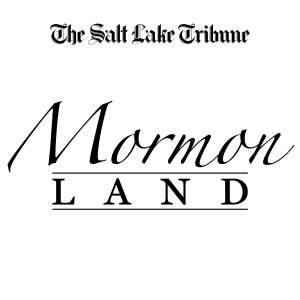
Wednesday Feb 16, 2022
Wednesday Feb 16, 2022
Race is a fraught topic in The Church of Jesus Christ of Latter-day Saints.
For more than 125 years, the Utah-based faith denied Black members access to its priesthood and temples. That exclusion ended in 1978, but discrimination and racism have persisted. And, though the church has formed an alliance with the NAACP, and church leaders have strongly condemned all forms of racism and bigotry, some members continue to resist change.
In a recent speech, a Brigham Young University professor and high-ranking church leader defended the former priesthood/temple ban as part of God’s timing.
On this week’s show, Black Latter-day Saint scholar Janan Graham-Russell, a graduate student at Harvard University who is spending the year at the University of Utah as a Mormon studies fellow, discusses that speech by Brad Wilcox — who has apologized twice for his remarks — and the ongoing issue of racism among church members.
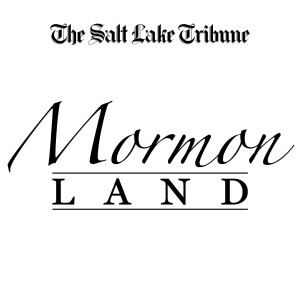
Wednesday Feb 09, 2022
Wednesday Feb 09, 2022
Today’s world seems more divided than ever on political solutions to seemingly intractable problems, and some such rifts have seeped into The Church of Jesus Christ of Latter-day Saints.
Many members have entrenched themselves in their own partisan positions, choosing derision over dialogue by refusing to talk or even listen to other viewpoints. Others have chosen to eschew politics altogether, believing that it is impossible for policymakers to get anything right and that politics has no place with faith.
Retired federal Judge Thomas Griffith, a Latter-day Saint convert who stepped down from the U.S. Court of Appeals for the District of Columbia Circuit in 2020, argues just the opposite — that politics is actually a “religious activity.”
On this week’s show, he discusses how to practice politics without “losing your soul.”
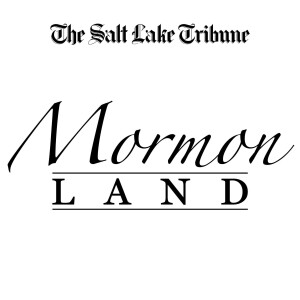
Wednesday Feb 02, 2022
Wednesday Feb 02, 2022
Eugene England, a popular professor at Brigham Young University who died 20 years ago, probably is best known as the founder of Dialogue: A Journal of Mormon Thought.
Last summer, Terryl Givens published the first full-length biography of England, titled “Stretching the Heavens: The Life of Eugene England and the Crisis of Modern Mormonism,” detailing his life as a devout but controversial member of The Church of Jesus Christ of Latter-day Saints.
A second volume, called “Eugene England: A Mormon Liberal” by Kristine Haglund, now explores the scholar’s work and thought. A respected essayist, England was one of the most influential intellectuals in the modern church.
On this week’s show, Haglund examines England’s important contributions to Mormonism, how he was both liberal and conservative, his embrace of church founder Joseph Smith and successor Brigham Young, his friendships and fights with Latter-day Saint apostles, his political views, his theological musings and more.
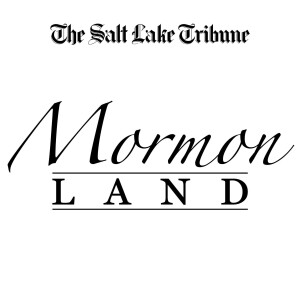
Wednesday Jan 26, 2022
Wednesday Jan 26, 2022
On Jan. 15, after an undersea volcano showered the kingdom of Tonga with tsunami waves, flooding, rocks and ash, members of The Church of Jesus Christ of Latter-day Saints sprang into action.
The Utah-based faith provided tons of food, clothes, water and other household goods to the devastated islands. Church-owned Liahona High School became a welcome refuge for some 1,250 people seeking emergency housing. The governing First Presidency sent a letter of support and consolation to Tonga’s king and queen as well as Latter-day Saints throughout the nation.
The church’s imprint on the country is undeniable — Tonga has the highest percentage of Latter-day Saints of any country in the world (nearly 63%; about the same as Utah’s).
On this week’s show, Verna Tukuafu, a Tongan native and international area manager at BYU-Pathway Worldwide, discusses the relief efforts in her homeland and what life is like there for members of the majority faith.
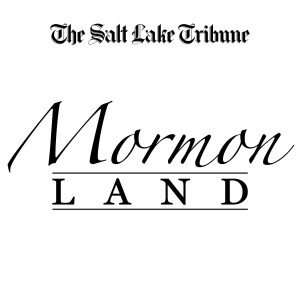
Wednesday Jan 19, 2022
Wednesday Jan 19, 2022
For more than a dozen years, Devery Anderson, a white Latter-day Saint studying history at the University of Utah, was obsessed with the 1955 killing of a 14-year-old Black youth, Emmett Till.
Anderson’s quest for details culminated in 2015, with publication of his book-length exploration, “Emmett Till: The Murder That Shocked the World and Propelled the Civil Rights Movement.”
Now, nearly seven years later, Anderson’s book is the basis of a new miniseries, titled “Women of the Movement,” airing this month on ABC.
Anderson, who consulted on the show, is deeply aware of his own faith’s past involvement in a racist policy denying Black males ordination to the priesthood and Black females access to temple ceremonies. That practice ended in 1978, but racism in the church remains a problem to this day.
On this week’s podcast, Anderson talks about his groundbreaking work on the Till biography and his church’s racial history.
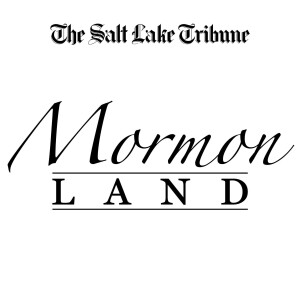
Wednesday Jan 12, 2022
Wednesday Jan 12, 2022
This season’s University of Utah football team was stocked with stars en route to its historic run to a Pac-12 title and the school’s first-ever Rose Bowl appearance.
But the heart and soul of the squad was found in an unlikely, undersized, overaged Latter-day Saint receiver-return specialist whose affable, gregarious and lighthearted nature seemed to belie the violent sport he so clearly loved.
After a standout freshman season, Britain Covey, all 5 feet 8 inches and 170 pounds of him, served a mission to Chile for The Church of Jesus Christ of Latter-day Saints and then returned to the Salt Lake City campus, where he proceeded to catch passes, juke tacklers and tally touchdowns to chants from fans of “Covey, Covey, Covey.”
But how did this 24-year-old Provo native — who dreamed of playing for Brigham Young University and whose famous grandfather (Stephen R. Covey of “7 Habits of Highly Effective People” fame) though a U. graduate, boasted deep BYU ties — end up at rival Utah, a place Britain once thought only a “bad person” would attend?
On this week’s show, Covey explains why he chose the U. over the Y.; how his mission helps him on and off the field; how his college coach, fellow Latter-day Saint Kyle Whittingham, became a role model; how he remembers his Rose Bowl experience; and how he is preparing for a shot at the NFL.
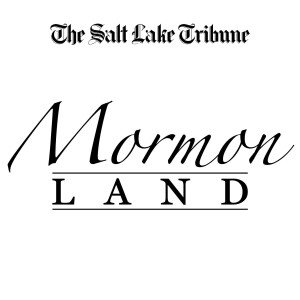
Wednesday Jan 05, 2022
Wednesday Jan 05, 2022
Longtime Salt Lake Tribune sports columnist Gordon Monson usually writes about first downs, double-faults, 3-pointers and four-baggers. He is at home commenting on what takes place on basketball courts, football fields and baseball diamonds.
Occasionally, though, he enters another arena — that of religion. A practicing member of The Church of Jesus Christ of Latter-day Saints, he has opined about Sabbath observance, BYU’s Honor Code, even how Jesus might behave at a ballgame.
In that spirit this past weekend, he offered 20 reforms he would like to see his church undertake. On this week’s show, he discusses those suggestions on topics ranging from missions to money, Word of Wisdom to Sunday sports, tithing to temple recommends, women’s equality to General Conference talks.
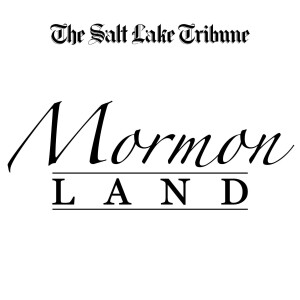
Wednesday Dec 29, 2021
Wednesday Dec 29, 2021
Most people know that The Church of Jesus Christ of Latter-day Saints practiced polygamy in the 19th century, but the Utah-based faith eventually abandoned it, beginning with a pronouncement in 1890 by church President Wilford Woodruff known as “the Manifesto.”
Even most members, however, are unaware of Woodruff’s 1894 announcement, termed a “revelation,” which ended a teaching known as “the law of adoption,” under which adult members were sealed to church leaders.
In General Conference of that year, Woodruff announced that hereafter temple sealings should proceed strictly along family lines, thereby replacing the earlier “kingdom theology” with what became the modern Latter-day Saint understanding of eternal families.
“Without an understanding of kingdom theology and the law of adoption, it’s not possible to fully grasp how 19th-century Latter-day Saints understood polygamy,” writes scholar Nate Oman, who teaches at William & Mary Law School in Virginia.
On this week’s show, Oman discusses this often-overlooked but highly important piece of Mormon history.
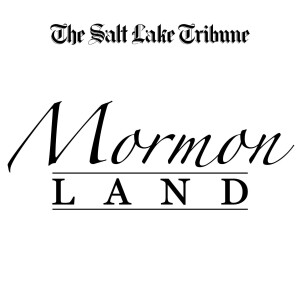
Wednesday Dec 22, 2021
Wednesday Dec 22, 2021
Some members of The Church of Jesus Christ of Latter-day Saints believe that their church has become staid, legalistic and bureaucratic. They yearn for more of the mystical encounters espoused by church founder Joseph Smith and his early followers.
In 2006, Utah attorney Denver Snuffer published “The Second Comforter: Conversing With the Lord Through the Veil.” It became an overnight sensation with those Latter-day Saints who wanted more spiritual experiences.
That book and the volumes that followed attracted the attention of church authorities and, in 2013, Snuffer was excommunicated.
Hundreds of other members joined him at gatherings and in small groups and thus was born the Remnant movement, which today touts thousands of adherents.
On this week’s show, Snuffer discusses the movement — its past, present and future — and his views of Mormon founder Joseph Smith, pioneer-prophet Brigham Young and current church President Russell M. Nelson, along with his experiences with deity, expanding scripture and more.
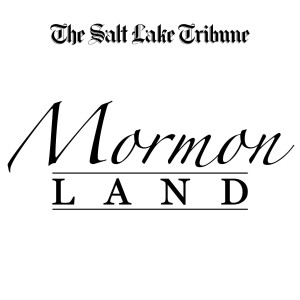
Wednesday Dec 15, 2021
Wednesday Dec 15, 2021
The U.S. Supreme Court recently heard arguments about a Mississippi law banning virtually all abortions after 15 weeks of pregnancy.
Anti-abortion activists are cheering the possibility that the court could overturn the landmark Roe v. Wade decision, which granted women a constitutional right to abortion before fetal viability.
The Church of Jesus Christ of Latter-day Saints has aligned itself on several social issues with conservative religions, but its position on abortion is more complicated than that. The Utah-based faith condemns “elective abortion for personal or social convenience” but permits the procedure in cases of rape or incest, severe fetal defects, or when the life or health of the mother is in “serious jeopardy.”
On this week’s show, Christine Durham, a former justice and chief justice of Utah’s Supreme Court and herself a Latter-day Saint, discusses the possible monumental shift in abortion policy and practices, and how the high court’s decision may impact the nation, states, Utah’s most dominant faith, its members and women overall — warning that women cannot truly be equal without control of their own bodies.

More Mormon Land
There's more to "Mormon Land" than just the podcast. You can get access to episode transcripts, Tribune faith stories and more on Patreon.
Sign up for the free weekly Mormon Land newsletter to get the latest happenings about the church from around the world.
And follow Mormon.Land on Instagram.







